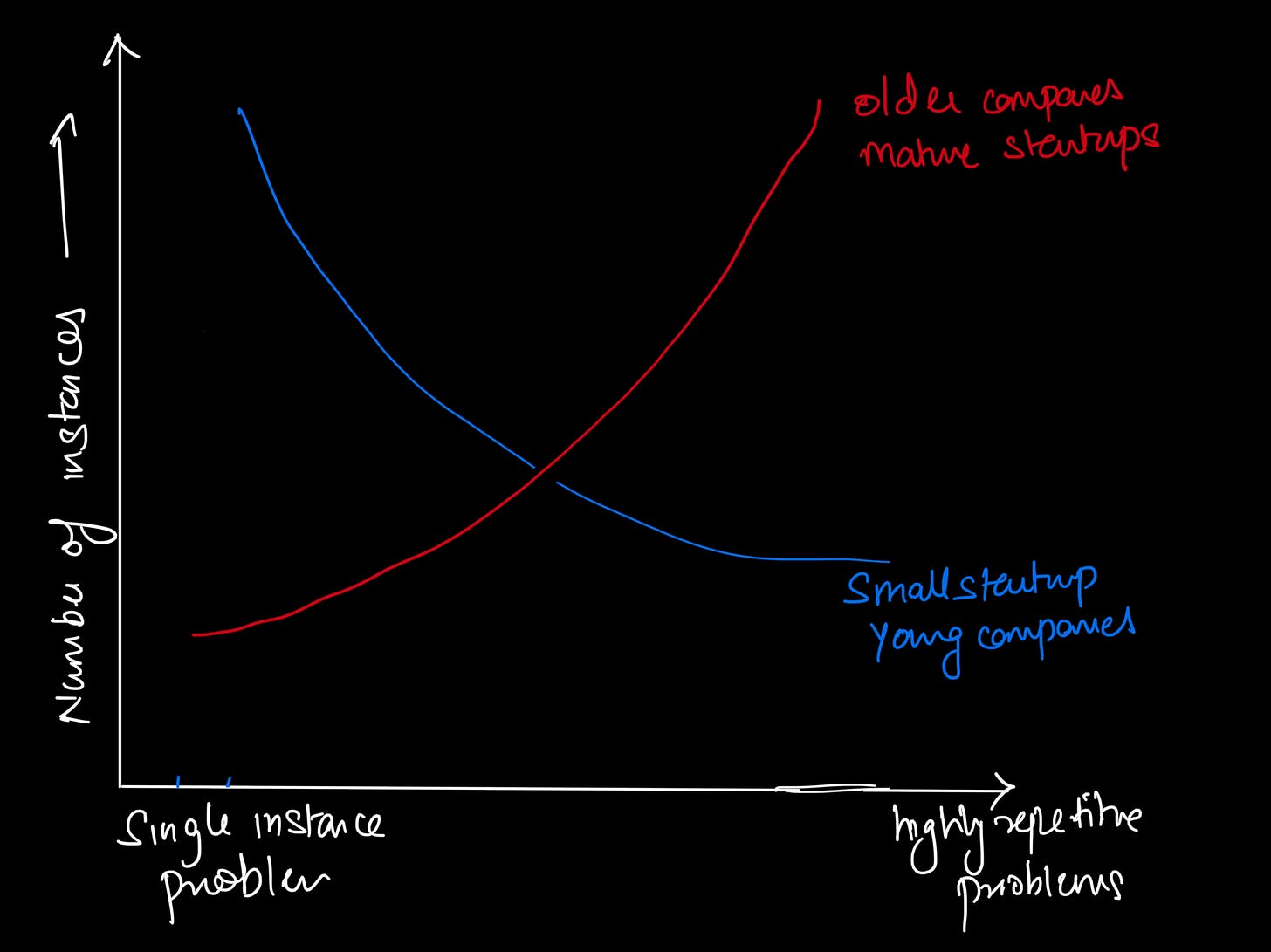Chief of Staff: The Good, the Bad and the Ugly of scaling for Generalists! (1/2)
My inside take of all things Chief of Staff..
With the prime decade of consulting behind us, more and more folks are jumping onto the rollercoaster of building small/medium-sized tech companies. The influx of generalists into the tech industry has created a new league of roles. One thing that has become increasingly common is the role of the Chief of Staff, aka Founders Office, COO Office, Strategy Lead, and in some instances also COOs. There is already a lot of literature on whether companies need a COS role. We will cover why this trend is more prominent with founders running smaller companies, what this role does, and the different career forms it can lead to for individuals (in part II)
I have experienced this role at Beam in my previous position. My CEO and I spent a lot of time refining and redefining the part for me/ others over the years. Based on research, the best readings on the topic I have found are:
High Growth Handbook by Elad Gill: This is interesting for many reasons, primarily for founders looking for a playbook for fast scale-up. Several mentions of these “gap-fillers” leaders in this book reflect the same R&R covered by COS across many companies.
Working Backwards by Colin Bryar and Bill Carr: Colin was a TA (technical advisor) for Jeff Bezos for 1-2 years before he headed up different divisions at Amazon. He was a senior leader who shared his Amazon learnings through his eyes as a COS to the founder. The book showcases his impact and observations of building one of the biggest internet businesses of our time.
The need for COS in an organisation
In my experience, COS are generalists who solve unknown, unidentified and non-repetitive problems for Founders/ CEOs/ CFOs. These highly talented individuals use 1st principles to solve all issues for which there is currently no process and, in some cases, no budget.
Where does this happen? When there are too many new problems to be solved in companies—> either in early-stage companies or new divisions/ business lines in more prominent growth companies.
If you are a founder and you feel you are always playing catchup on issues related to your organisation, or if you are being dragged into small but essential decisions - then maybe it’s time to extend your presence in the organisation with the COS hire. Bringing good talent from other industries (ex, consulting) into these programmes can amplify your impact on the organisation. It can be a low-cost, high-impact role you would want to consider hiring asap.
The Good: slingshot career through access, intense learning for life
COS can be anything you make of it. It can land you in all situations directly driven by your manager (CEO/ Founder/ CFO, etc).
Getting access to situations that drive organisations create instances of immense learning. It could be a once-in-a-lifetime experience, especially for many younger folks. These are experiences that no MBA, no book, or no simulation can make real!
I call these “vantage points” of life.
One such experience for me at Beam was the Series A fundraising process in Nov 2019. Over the two months, I learned everything about fundraising, from understanding/ reading Termsheets, creating projection models, setting up pitch decks, creating TAM projections, helping answer DD questions, and sitting with auditors. However, seeing my CEO’s drive to close the fundraise in a tough market was a lesson in resilience like none other. I never knew/thought anyone would give us money until I saw my founder pitch the micromobility dream. Access to those sessions and brainstorms while navigating an internal crisis simultaneously - has been one of my most special career learnings!
The Bad: COS is a very up-or-out kind of role in an organisation
COS is always a sort off a band-aid leadership role to help with new/ single instance problems occuring in companies. They either grow up quickly, or are replaced by seasonsed players if companies do well.
While more common in the West (a more mature market with a higher density of seasoned tech talent), in many instances in India/ South East Asia - COS usually graduate to lead divisions/ departments more successfully than previously thought. It might be a tricky transition in some instances, and a lot of good COSs cant scale themselves to manage new divisions for the following reasons:
Lack of specific knowledge about the vertical
Cultural, outward-looking reasons (hiring, foreign country operations)
Inability to scale leadership skills
Failure to deliver transformation at scale
In good organisations, COS roles are either supplemented by a core leader strength or parked into building a career in strategy, corporate development, CEO’s office, etc. However, the bar to continue to perform here is higher than other roles because of its “non-measurable” impact on the organisation's output.
The Ugly: It is a lifestyle choice, and your manager holds the key to your happiness!
No one talks about the toll it takes to deliver value day in day out! Harder if you manager is unfair.
I spoke to a friend struggling in a COS role because they were working with a stern founder with a different value system (inherited from their industry experience) and many personal insecurities. Despite the high impact, they eventually quit.
A lousy boss impacts everyone’s job but takes a 10X toll on someone in a COS role. Your equation with your manager is the most significant external factor (beyond the pressure of your multiple deliverables) that makes your life 10X harder or a bit easier. It’s something to watch out for more than anything coming into this role. Imagine being on top of things, driving impact and still having to deal with someone like Jeff Bezos 24/7. For Brian/ Colin, this would have been a different ball game.
Not every founder/ CEO will be like Jeff, but it certainly takes a version of similar DNA to succeed and differentiate one’s company. These are by no means push-over personalities .. hah! When I reflect - I feel one of the most significant reasons for my success at Beam was my relationship with my CEO. He had an immense quality to take feedback - good, bad, easy, harsh, incorrect - without judgment. We went through the cycle of building Beam through many troughs/ crests because we had close to 100% trust, and for that experience, I felt I was very fortunate.
I hope you enjoyed this. Stay tuned for part II.




